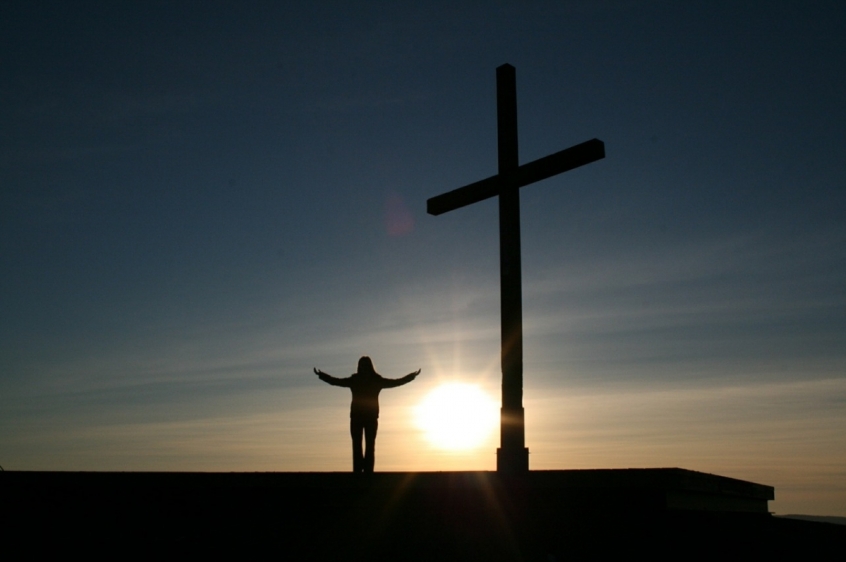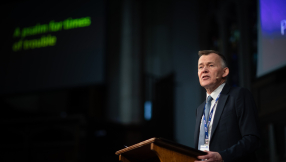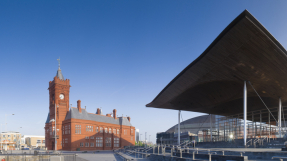
For a few days now numerous friends have been sharing a BBC article with me, or tagging me in the many ensuing debates about it.
It's written by Damon Rose, a producer for BBC Ouch who has been blind since his teens.
Damon says: "The message I've taken from the Christians who've offered me healing is that I need to be "fixed" - just as Jesus "fixed" disabled people in the Gospels. Far from converting me, this has put me off Christianity. So I was interested to learn that it also annoys some disabled Christians." But there is more to this article than a rant about unsought prayers. It's a well thought out piece taking into account the thoughts of many disabled Christians and theologians.
I've written a lot about unsought offers of healing in the past, so I'm not going to touch that here. But it's been really interesting to see how people have engaged with the article. Mostly, those with disabilities loved it - it has opened a much needed debate surrounding disability theology. Disabled people have been talking about this stuff for years, but others in the Christian world seemed caught out by someone who isn't a Christian talking about issues they'd not considered.
Some, generally those with no connection to disability, have shared it with complete shock at the theology mentioned within it. One of these ideas was the possibility of still having a disability in Heaven.
Thoughts on the theology of Heaven are quite varied, and disability is just a small part of it. There are many views out there and Damon quotes some of these, but there are as many views on this theology as there are disabilities.
It's also true that those who have a lived experience of disability will often, but not always, have a different view to those who have no practical connection with it, and this has been obvious in the online conversations surrounding the article.
So what do people who have a lived experience of disability think?
My Christian autistic friends see their autism as an intrinsic part of who they are and they believe they will be autistic in heaven. This comes from seeing autism as neuro-diversity rather than a disability.
I have friends with physical disabilities who sit on both sides of the heaven debate: some firmly believe they will no longer have a disability in heaven and look forward to that, but others say the healing will be in the attitude of others, meaning having a disability will no longer be a problem because all obstacles will be removed. They identify as disabled and believe they will also be disabled in Heaven.
There appears to be a difference between those born with a disability and those with an 'acquired' disability too.
Some believe the answer to the Heaven conundrum will be different for each person - a sort of individualised place in Heaven that depends on how you identify with your disability.
Parents of children with additional needs are equally divided on the subject, and churchmanship also has an impact on how it is viewed.
For a number of people on both sides of the debate that I've seen commenting on this, the answer to healing and Heaven has often been one of preference rather than theology.
The Bible says we will know each other in Heaven - but it doesn't say how. I've never met Moses, but the implications are that I will know him. I assume we won't have name tags on, so I'm thinking this will be part of having a renewed mind and not because of physical recognition.
READ MORE: Christy Wimber on the church, healing, and wholeness this side of Heaven
So even without the identifying features of our disability, will it be possible for us to be known?
Reading the latter part of 1 Corinthians 15 is interesting and speaks to the idea that we will be transformed in heaven. But I'm told that it could be argued from other passages that this transformation may not include healing.
Isaiah 65:17 tells us about a new Heaven and Earth; "The former things will not be remembered, nor will they come to mind." How does this fit with how we view Heaven and healing? Does it fit with other passages about Heaven?
As you can see, we need more scholarly work on this subject that can then be explained in a way that can be understood. This thinking needs to take seriously those in the disability and autism communities, from all perspectives – including those who currently have no voice in the discussion. Their concerns need to be weighed and answered with respect and not just dismissed. People with disabilities need to be in the debate rather than having two separate circles that never meet.
Meanwhile, back at having a transformed mind, I've only seen one other person comment on this in their response to the article: are we missing the fact that we are looking at this with a mind that cannot possibly comprehend what heaven will be and what we will become in this new order?
I'm not going to say where I sit in this debate, but I will issue one warning. Theology is not based solely on our human identity or our personal preferences. It is about what God is saying to us through the Bible.
I know my brain is not big enough to comprehend Heaven, nor can I see into the mind of God. So I'm happy to leave it with Him. To continue enjoying the debate because it's interesting, whilst knowing whatever the answer is, it will be God's best for us all.....not just me.
If you are interested in more about Christian perspectives on healing and Heaven, come back for my next column when I'll be looking at one of the other debates that has come out of the BBC article, which is equally interesting: why did Jesus heal people?
Kay Morgan-Gurr is Chair of Children Matter and Co-Founder of the Additional Needs Alliance, part of the Evangelical Alliance Council. For more, www.kaymorgangurr.com and on Twitter @kaymorgan_gurr













